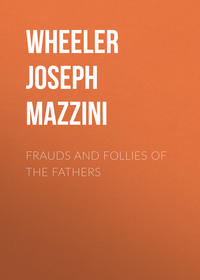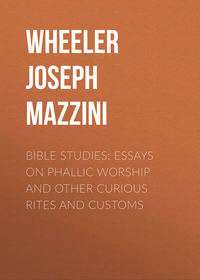 полная версия
полная версияThe Christian Doctrine of Hell
Jonathan Edwards, one of the most consistent Christians that ever breathed, devoted a work to the subject. The Thirteenth Sermon of his Works is entitled "The End of the Wicked contemplated by the Righteous," and is particularly devoted to the illustration of the doctrine that "the sight of hell torments will exalt the happiness of the saints forever." "It will," he continues, "not only make them more sensible of the greatness and freeness of the grace of God in their happiness, but it really makes their happiness the greater, as it will make them more sensible of their own happiness. It will give them a more lively relish of it; it will make them prize it more. When they see others who were of the same nature, and born under the same circumstances, plunged in such misery, and they so distinguished, it will make them the more sensible how happy they are."9 In his direful poem on the Last Day, the once popular Dr. Young makes one of God's victims vainly ask:
This one, this slender, almost no request: When I have wept a thousand lives away, When torment is grown weary of its prey, When I have ran of anguish'd years in fire Ten thousand thousands, let me then expire.The pious Dr. Samuel Hopkins thus displays the Divine character and illustrates the loving kindness of the blessed Scripture promises: "The smoke of their torment shall ascend up in the sight of the blessed for ever and ever, and serve, as a most clear glass before their eyes, to give them a bright and most effective view. This display of the Divine character will be most entertaining to all who love God, will give them the highest and most ineffable pleasure. Should the fire of this eternal punishment cease, it would in a great measure obscure the light of heaven and put an end to a great part of the happiness and glory of the blessed."
Contrast with this holy utterance of the pious Christian, the burning words of the Atheist poet, James Thomson:
If any human soul at all Must die the second death, must fall Into that gulph of quenchless flame Which keeps its victims still the same, Unpurified as unconsumed, To everlasting torments doomed; Then I give God my scorn and hate, And turning back from Heaven's gate (Suppose me got there!) bow, Adieu! Almighty Devil, damn me too.10Baxter, in his Saint's Everlasting Best, declares: "The principal author of hell torments is God himself. As it was no less than God whom the sinner had offended, so it is no less than God who will punish them for their offences. He has prepared those torments for his enemies.... The everlasting flames of hell will not be thought too hot for the rebellious; and when they have burnt there for millions of ages, he will not repent him of the evil which is befallen them."
Was not Shelley right when he described the Christian God:—
A vengeful, pitiless and almighty fiend, Whose mercy is a nick-name for the rage Of tameless tigers hungering for blood.It would be easy to multiply citations. Spurgeon, among living divines, has preached hell as hot as anybody. But the doctrine is decaying together with real faith in Christianity.
Walter Savage Landor well says: "The priesthood in all religions sings the same anthem. First, the abuses are stoutly defended, but when the ground is no longer tenable, then these abuses are to be distinguished and separated from the true faith." But what are we to think of the sudden conversion of a church that has taught falsity so long? If it did not know the truth on this important point, how can it be credited with knowing it upon any other matter? The rejection of hell cuts the ground from under the gospel. Salvation supposes a prior damnation. If there is no hell no Savior is needed. Christianity is all of a piece, and, its main prop gone it must fall like a house of cards.
1
Antiq. xviii. 1-3; Wars ii, 8, 11-14.
2
De Spectaculis, c. 30. I have quoted the rendering in the orthodox Ante-Nicene Christian Library, vol. xi., pp. 34-35. Gibbon's version is more forcible.
3
Homily on 2 Thess. i., 1-2.
4
Library of the Fathers, pp. 15-16.
5
Lecky, History of European Morals, vol. ii., p. 222.
6
Summæ Suppl. qu 97.
7
Quoted in Hagenbach's History of Doctrines, 210, vol. ii., p. 152
8
Contemplation of the State of Man, ch. 68.
9
The Eternity of Hell Torments, p. 25 (London. 1789).
10
Vane's Story.



